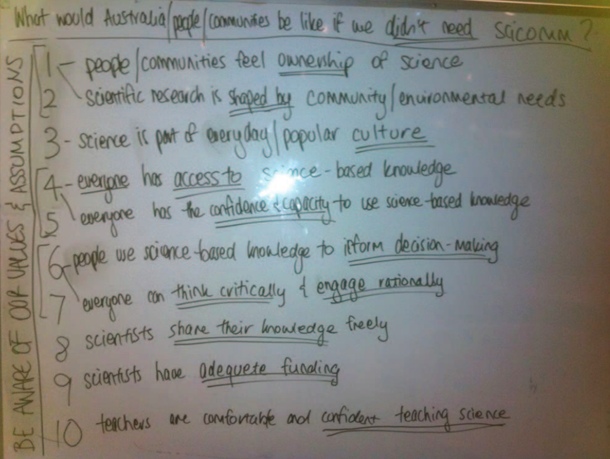Have we made progress in the last eight years? Updating findings of the 2012 participatory evaluation of the ASC conference.
A participatory evaluation session was run at the 2012 ASC conference, you can see some of the key outcomes on the picture to the right: these were framed as a vision for the future in which scicom had been effective.
Have we made progress on some of these themes? Are other themes now more important? What aspects are within science communicators’ control and which aren’t? How do these align with other priorities?
What will participants gain from attending your session?
– understanding of purposes of science communication, clarifying own perspectives & comparing with others
– developing shared understanding of indicators for tracking progress in science communication, potentially for people to then use in their own work
– evaluation of the conference in a participatory format while people are gathered, more engaging than survey.
Presenters
Cobi Calyx, UNSW Centre for Social Impact
Lisa Bailey, ASC President
Jenni Metcalfe, Director, Econnect Communication
When: Wednesday 19th February, 13:50pm-15:25pm
Where: Room G31, Learning and Teaching Building, 19 Ancora Imparo Way, Clayton
Hashtag: TBC


















